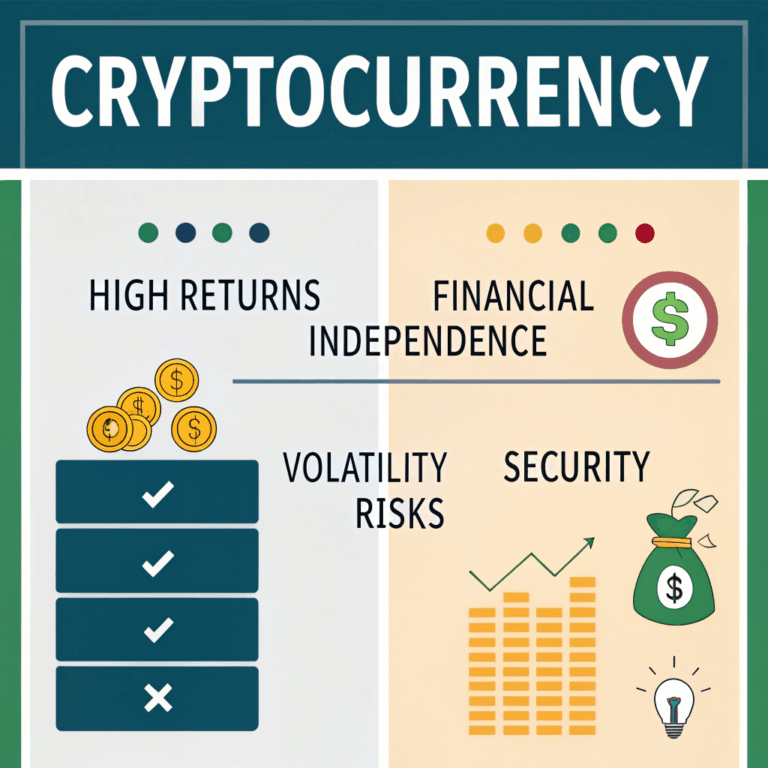Best Crypto Wallets for Beginners in 2025

Introduction
If you’re new to cryptocurrency, one of the first things you’ll hear about is the importance of a crypto wallet. In 2025, with increased adoption and growing risks, choosing the right wallet is more important than ever. This guide breaks down the best wallets for beginners and helps you store your crypto securely.
What is a Crypto Wallet?
A crypto wallet is a tool that allows you to store, send, and receive cryptocurrencies. Unlike traditional wallets, these don’t store physical money but rather the private keys that grant access to your digital assets on the blockchain.
Why Wallets Matter for Beginners
Beginners often leave their crypto on exchanges—which can be risky. A dedicated wallet provides better control, privacy, and security. It’s your first step to taking full ownership of your assets.
Types of Crypto Wallets
There are two main categories of wallets:
- Hot Wallets: Connected to the internet; convenient for frequent access.
- Cold Wallets: Offline storage; ideal for long-term holding and maximum security.
Hot Wallets vs Cold Wallets
| Feature | Hot Wallets | Cold Wallets |
|---|---|---|
| Internet Access | Yes | No |
| Security | Medium | High |
| Convenience | Very convenient | Less convenient |
| Best For | Daily transactions | Long-term storage |
| Risk of Hacks | Higher | Minimal |
Best Hot Wallets in 2025
Here are the most trusted and user-friendly hot wallets for beginners:
- Trust Wallet: Mobile-friendly, supports multiple coins, easy UI.
- MetaMask: Great for Ethereum and Web3 apps.
- Exodus: Supports desktop and mobile with an intuitive interface.
- Coinbase Wallet: Built by Coinbase, offers extra protection if used with exchange account.
Best Cold Wallets in 2025
Cold wallets are perfect if you plan to hold large amounts of crypto for a long time:
- Ledger Nano X: Bluetooth-enabled, highly secure, supports 1,000+ coins.
- Trezor Model T: Touchscreen, open-source, trusted for years.
- ELLIPAL Titan: Fully air-gapped, supports QR-based transfers.
- SafePal S1: Affordable and portable with strong encryption.
How to Choose the Right Wallet
Ask yourself these questions:
- Will you trade often or hold long-term?
- Do you value mobile convenience or maximum security?
- What coins do you plan to hold?
- What’s your budget?
If you’re just starting out, a hot wallet like Trust Wallet or Coinbase Wallet is a great start. When you’re ready to invest more, add a cold wallet like Ledger or Trezor.
Wallet Security Tips for Beginners
- Always back up your recovery phrase and store it offline.
- Enable two-factor authentication (2FA) if available.
- Never share your private keys with anyone.
- Avoid downloading wallet apps from unofficial sources.
- Regularly update your software/wallet firmware.
Common Mistakes to Avoid
- Leaving large amounts of crypto on exchanges
- Failing to back up your seed phrase
- Using wallets with poor reviews or unknown origins
- Ignoring security updates
- Sharing sensitive info on social media
FAQ
Q: Can I store any cryptocurrency in any wallet?
No, wallets support specific blockchains. Always check compatibility.
Q: What happens if I lose my recovery phrase?
You could permanently lose access to your funds. Always store it safely.
Q: Are hot wallets unsafe?
Not necessarily. They’re fine for small amounts and everyday use, but cold wallets are better for large holdings.
Q: Do I need both a hot and cold wallet?
Many users use both: hot for convenience, cold for safety.
Conclusion
Your crypto wallet is your gateway to the world of digital assets. As a beginner in 2025, your top priority should be learning how to store your coins safely. Start simple, stay secure, and upgrade as your portfolio grows. Whether you go hot or cold, having a reliable wallet is a must





